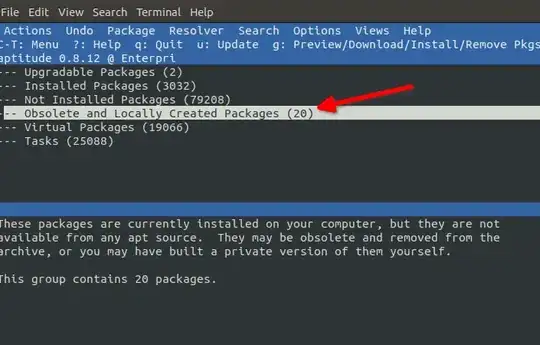Assume that, by using apt I installed Microsoft Edge to the system after adding a source for it and then after the installation I (accidentally) removed the "apt / sources.list" file that I had added. For example:
# echo 'deb [arch=amd64] https://packages.microsoft.com/repos/edge/ stable main' \
> /etc/apt/sources.list.d/microsoft-edge.list
# apt install microsoft-edge-stable
# rm /etc/apt/sources.list.d/microsoft-edge.list
I think that after the above commands, I will no longer be able to upgrade Microsoft Edge.
Is there a method to list such "orphaned" software on the system?

